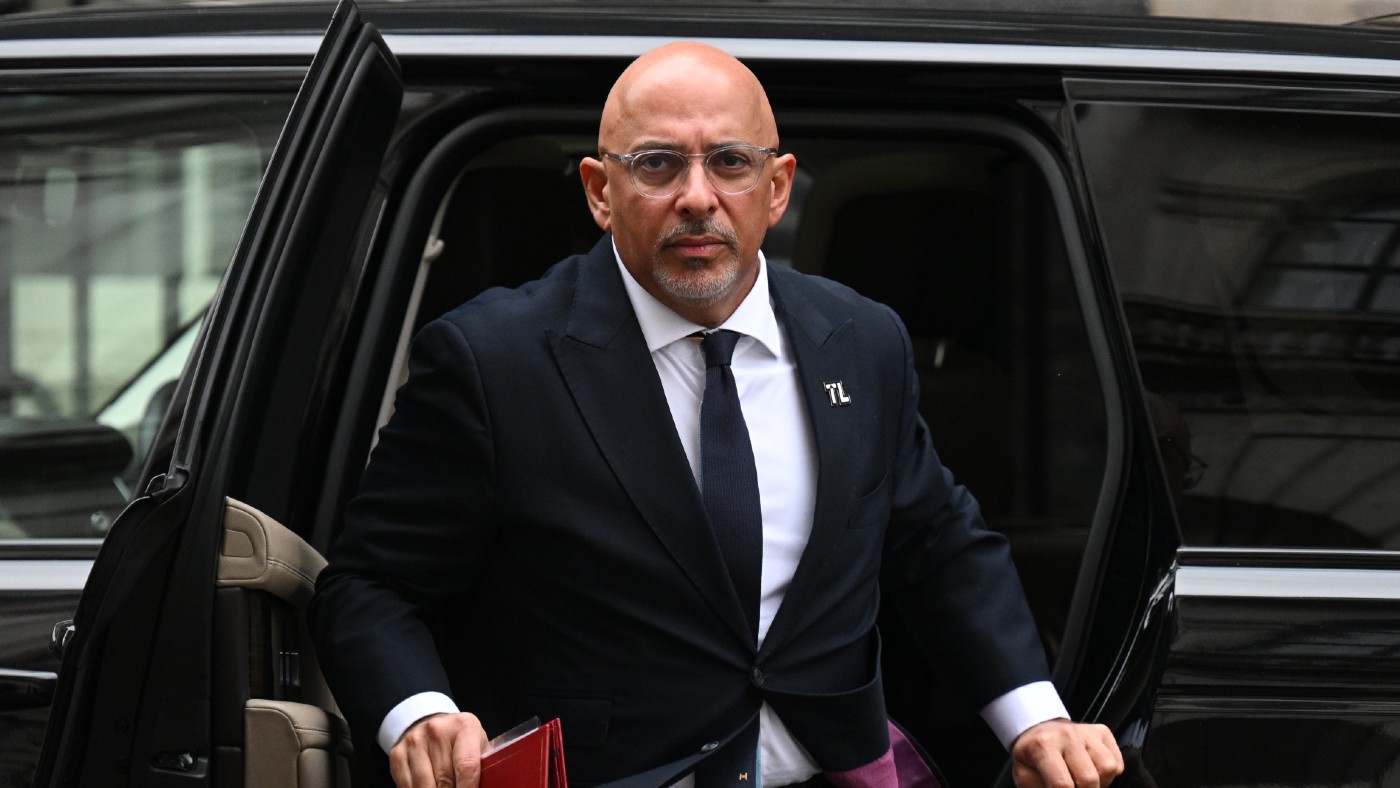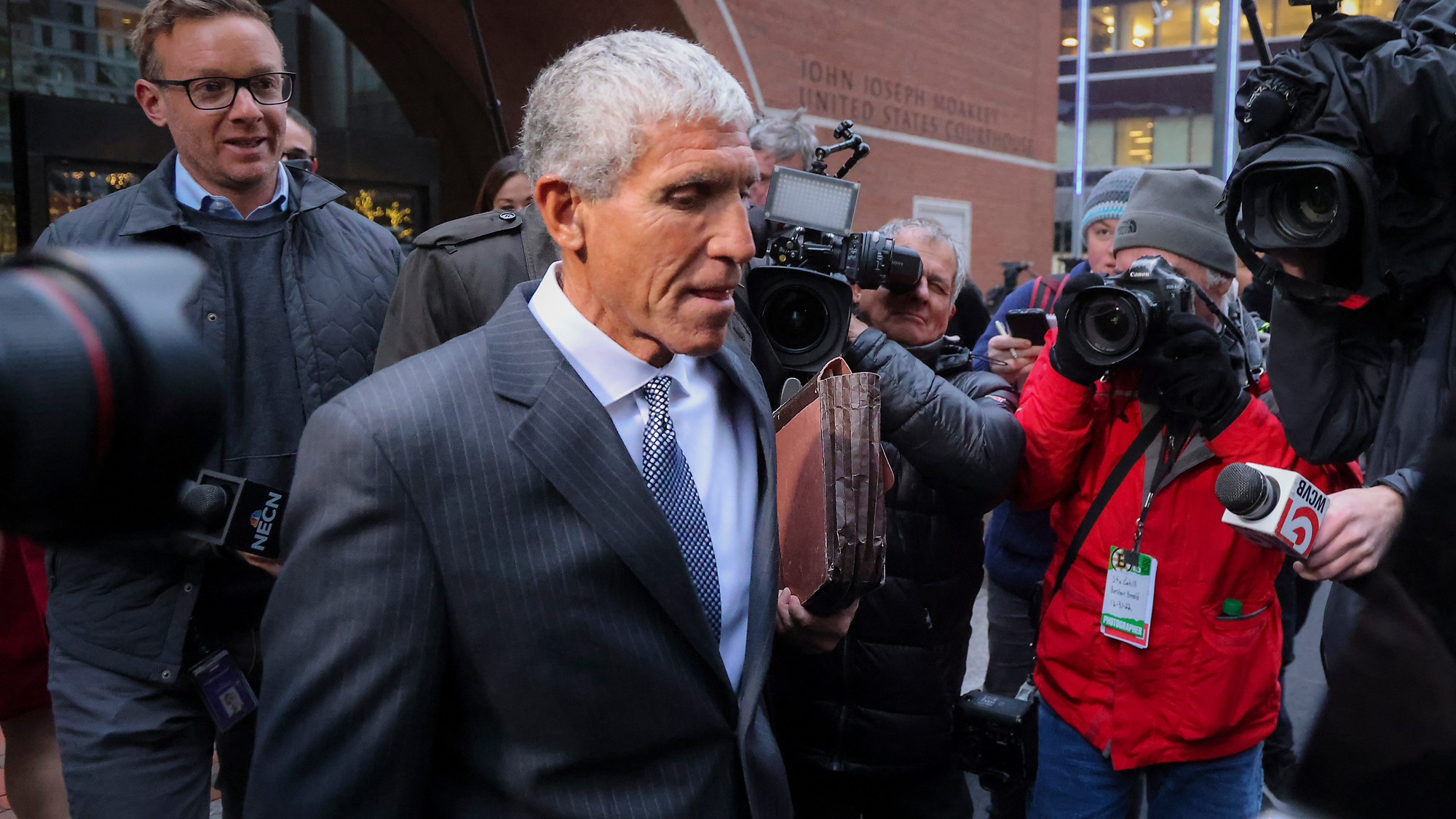Are UK classrooms a new political battleground?
Government has issued new guidance on political neutrality in schools

A free daily email with the biggest news stories of the day – and the best features from TheWeek.com
You are now subscribed
Your newsletter sign-up was successful
In the latest skirmish in the Tory Party’s “war on woke”, the Government has issued new guidance on “political impartiality in schools”, said Georgia Chambers in The i Paper.
The guidelines, published by Education Secretary Nadhim Zahawi, propose that the teaching of potentially controversial historical figures should focus primarily on “factual information” about them, and that issues related to the British empire must be presented in “a balanced manner”. Some of the guidance is aimed at groups such as Black Lives Matter which, it says, have “partisan views”.
It’s easy to read between the lines, said Nesrine Malik in The Guardian. The document singles out topics such as empire, racism and the climate crisis as political issues that should be treated with particular care. The effect, of course, will be to make teachers nervous about teaching them – and to move the parameters of what is perceived as neutral and what is ideological “another inch to the right”.
The Week
Escape your echo chamber. Get the facts behind the news, plus analysis from multiple perspectives.

Sign up for The Week's Free Newsletters
From our morning news briefing to a weekly Good News Newsletter, get the best of The Week delivered directly to your inbox.
From our morning news briefing to a weekly Good News Newsletter, get the best of The Week delivered directly to your inbox.
That’s completely unfair, said Andrew Tettenborn in The Spectator. It’s “common sense” – and a legal obligation – that schools should keep their teaching politically neutral when dealing with sensitive topics. The guidance states that controversial matters should still be taught, with proper balance, but that uncritical promotion of, say, Black Lives Matter ideology about “white privilege” or climate activism is not acceptable.
Zahawi’s guidance has “touched a raw nerve because, whatever the law says, a good deal of teaching is already politically skewed”, and very little is done about it. “Many teachers are overwhelmingly leftish in their politics, and their unions more so.”
The Tories are often accused of launching culture wars, said Douglas Murray in The Daily Telegraph. But the truth is that many of these wars have already been lost: just look at the utter dominance of “centre-left or left-wing” attitudes in “our public bodies and national institutions”, from the universities promoting woke ideology to the Tate gallery denouncing its own paintings for betraying views that don’t chime with our own.
The “elephant in the room” here is that the national curriculum itself is “inherently political”, said Stefano Hatfield in The i Paper. The subjects and texts that are chosen, the way they are framed and analysed – these are all political choices. So it would have been helpful if the guidance had clearly defined what a “political issue” actually is. Instead, it states: “School leaders and teachers will need to use reasonable judgement to determine what is and what is not a political issue.” If I was marking this document as an essay, I’d write, in red pen: “not precise enough”.
A free daily email with the biggest news stories of the day – and the best features from TheWeek.com
-
 How the FCC’s ‘equal time’ rule works
How the FCC’s ‘equal time’ rule worksIn the Spotlight The law is at the heart of the Colbert-CBS conflict
-
 What is the endgame in the DHS shutdown?
What is the endgame in the DHS shutdown?Today’s Big Question Democrats want to rein in ICE’s immigration crackdown
-
 ‘Poor time management isn’t just an inconvenience’
‘Poor time management isn’t just an inconvenience’Instant Opinion Opinion, comment and editorials of the day
-
 Education: More Americans say college isn’t worth it
Education: More Americans say college isn’t worth itfeature College is costly and job prospects are vanishing
-
 School phone bans: Why they're spreading
School phone bans: Why they're spreadingFeature 17 states are imposing all-day phone bans in schools
-
 Schools: The return of a dreaded fitness test
Schools: The return of a dreaded fitness testFeature Donald Trump is bringing the Presidential Fitness Test back to classrooms nationwide
-
 Columbia: A justified surrender to Trump?
Columbia: A justified surrender to Trump?Feature Columbia agrees to a $221M settlement and new restrictions to restore federal funding
-
 Education: America First vs. foreign students
Education: America First vs. foreign studentsFeature Trump's war on Harvard escalates as he blocks foreign students from enrolling at the university
-
 Education: Can public schools be religious?
Education: Can public schools be religious?Feature A Supreme Court seems ready to rule in favor of religious charter schools in Oklahoma, which could reshape public education
-
 Intelligence service: how schools are managing AI
Intelligence service: how schools are managing AIIn Depth Machine-thinking has the potential to create a paradigm shift in education but the change and challenges are huge
-
 Not worth cheating your way in
Not worth cheating your way inOpinion Bribing the college admissions office no longer makes any sense